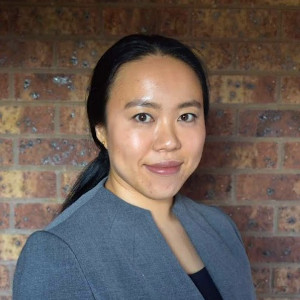International Digital Policy Initiative
The International Digital Policy Initiative (IDPI) focuses on the role of digital policy in the age of global interdependence.
"This study, and this report outlining key results, are particularly welcome because they help us understand what has been young people’s information-seeking behaviors during a specific phase of a pandemic, that has been characterized by an excess of information on traditional and digital media. However, the value of this study goes beyond the snapshot it provides as it also helps us characterize media consumption habits of young people in general. This research has highlighted in particular what information they trust; what they question; who they share information with and how they respond to mis- or disinformation."
Elena Altieri
Behavioural Insights Lead
World Health Organization
About the International Digital Policy Initiative
The distinction between our geopolitical and digital identities has become virtually non-existent, with many of our most pressing global challenges and individual interactions occurring beyond the bounds of domestic policy. These changing parameters illuminate several issues surrounding our conceptions of citizenship, data privacy and ownership, and accountability in the digital age.
The International Digital Policy Initiative, led by our Director Prof Ingrid Volkmer, considers the role of digital policy in the age of global interdependence. We publish cutting-edge independent research and collaborate with our multi-stakeholder network to identify best practices and encourage digital policy coherence and interoperability. Our aim is to assist policymakers and stakeholders to understand and embrace emerging technologies while mitigating the potential risks.
With established global connections, the International Digital Policy Initiative is uniquely placed to assist governments and multi-national stakeholders in developing innovative digital policy approaches, needed in today's world of global digital and data communication.
We contribute to international digital policy by:
- Undertaking research, including global surveys, case studies, and in-depth analysis
- Convening and contributing to events
- Creating and cultivating partnerships and collaborations with our global multi-stakeholder network, and
- Encouraging capacity development by sharing accessible and accurate information with our broader community.
Latest news and events

Professor Ingrid Volkmer,
Director of the International Digital Policy Initiative
Ingrid Volkmer is Professor of Digital Communication and Globalisation, School of Culture and Communication, Faculty of Arts, University of Melbourne. Overall, her research has a focus on how digital communications and big data are creating new models for transnational communication. Her work addresses these new models in a broad range of areas from public communication and notions of digital citizenship, to the implications for politics and international relations, and the development of new frameworks for transnational digital/data policy. She has completed the Global Youth Survey for the World Health Organization on 'Social Media & COVID-19 - a Global Study of Digital Crisis Interaction among Gen Z and Millenials' (conducted in cooperation with Wunderman Thompson and Pollfish). Professor Volkmer also leads the Global Risk Journalism Hub, an international network of interdisciplinary scholars, educators and practitioners investigating the news reporting of globalised crisis issues. Beyond her research, Professor Volkmer is actively engaged in public policy development in this area. She was appointed to the International Panel on Social Progress (IPSP) as a Lead Author in transnational digital communication. She engages in various digital policy debates at the OECD in 2018 and was appointed to the OECD's expert panel on AI governance in 2019.
Affiliated personnel



Social Media and COVID-19
“Digitally literate” Gen Z and Millennials' pandemic experience shaped by social media. Download the report here...
Younger people’s experience of the COVID-19 pandemic was shaped by their savvy use of social media platforms, navigating mis- and dis-information, subjective content loops, big-tech algorithms and emerging “splinter platforms,” a new University of Melbourne report has found.
Social Media & COVID-19 – a Global Study of Digital Crisis Interaction among Gen Z and Millennials revealed the surprising ways younger people curated and shared “crisis narratives” in the pandemic, and the unprecedented influence and importance of social media platforms to crisis communications.
The report draws from a study conducted across 24 countries with over 23,000 respondent social media users between 18 and 40 years of age.
Professor of Digital Communications, Globalisation and Digital Policy at the University of Melbourne Ingrid Volkmer authored the report from the study conducted with Wunderman Thompson, Pollfish and the World Health Organization.
Professor Volkmer said the research paves the way for a deeper understanding of how citizens interact with social media in moments of crisis and the platforms’ essential role as independent communicators.
“As you would expect, Facebook, WhatsApp, Instagram and YouTube are the top platforms used – However, our study shows that younger citizens use several platforms simultaneously, both in Western countries and in so-called developing countries like Nigeria,” Professor Volkmer said.
“To create their own “crisis narratives” younger citizens navigate social media, national media, search sites and messaging apps. They engage with peer communities, science and health experts, and – across all countries – also with the social media content of the World Health Organization.”
The study found younger people were very aware of the effect of algorithms in their social media engagement, with many developing strategies to break out of the familiar “content loops” of their social media communities, to draw on a variety of information sources to improve their understanding of the pandemic.
Most respondents also said they were very aware of “fake news,” with 35 per cent saying they ignored it and only seven per cent saying they knowingly shared it.
In recent months, governments have also recruited large-scale social media influencers to push out public health messages on COVID-19 to younger citizens, a recognition of the dominance of social media in communicating to these groups.
The study results suggest future crisis response strategies should incorporate engagement with “normal” social media users who act as “micro,” “macro” and “super” communicators - sharing information to smaller communities which is then amplified through a “cascading” process of resharing effect of growing exposure.
The report also identified the emergence of “splinter platforms” - a growing number of smaller social media platforms that became increasingly popular during the pandemic, but which are rarely included in public and digital policy debates.
The popular gaming community instant messaging and streaming platform Discord was identified as a “splinter platform”, with some respondents drawing information from the pandemic shared through gamer community channels.
Elena Altieri, Behavioural Insights Lead at the World Health Organization said these insights help to understand young people’s information seeking behaviours, in a pandemic characterised by an excess of information on traditional and digital media.
“This research has highlighted in particular what information [younger people] trust; what they question; who they share information with and how they respond to mis- or disinformation," Ms Altieri said in the Foreword to the report.
Reports
Volkmer, I. (2021). Social media and COVID-19: A global study of digital crisis interaction among Gen Z and millennials. Key results from of an international study conducted by Wunderman Thompson, University of Melbourne, Pollfish and the World Health Organization.
Research outputs
Churk, J. P., & Volkmer, I. (2021). Shaping citizen’s freedom of social media interaction in Tanzania: The role of city policy experts in digital policy-making. Journal of African Media Studies, 13(1), 73–87.
Volkmer, I. (2014). The Global Public Sphere: Public Communication in the Age of Reflective Interdependence. Wiley.
Media contributions
Interview in: Groch, S. (2021, January 13). “Wild West”: Who regulates social media and what’s Parler? The Age.
Ingrid Volkmer, Professor of Digital Communication and Globalisation
School of Culture and Communication , Faculty of Arts
ivolkmer@unimelb.edu.au